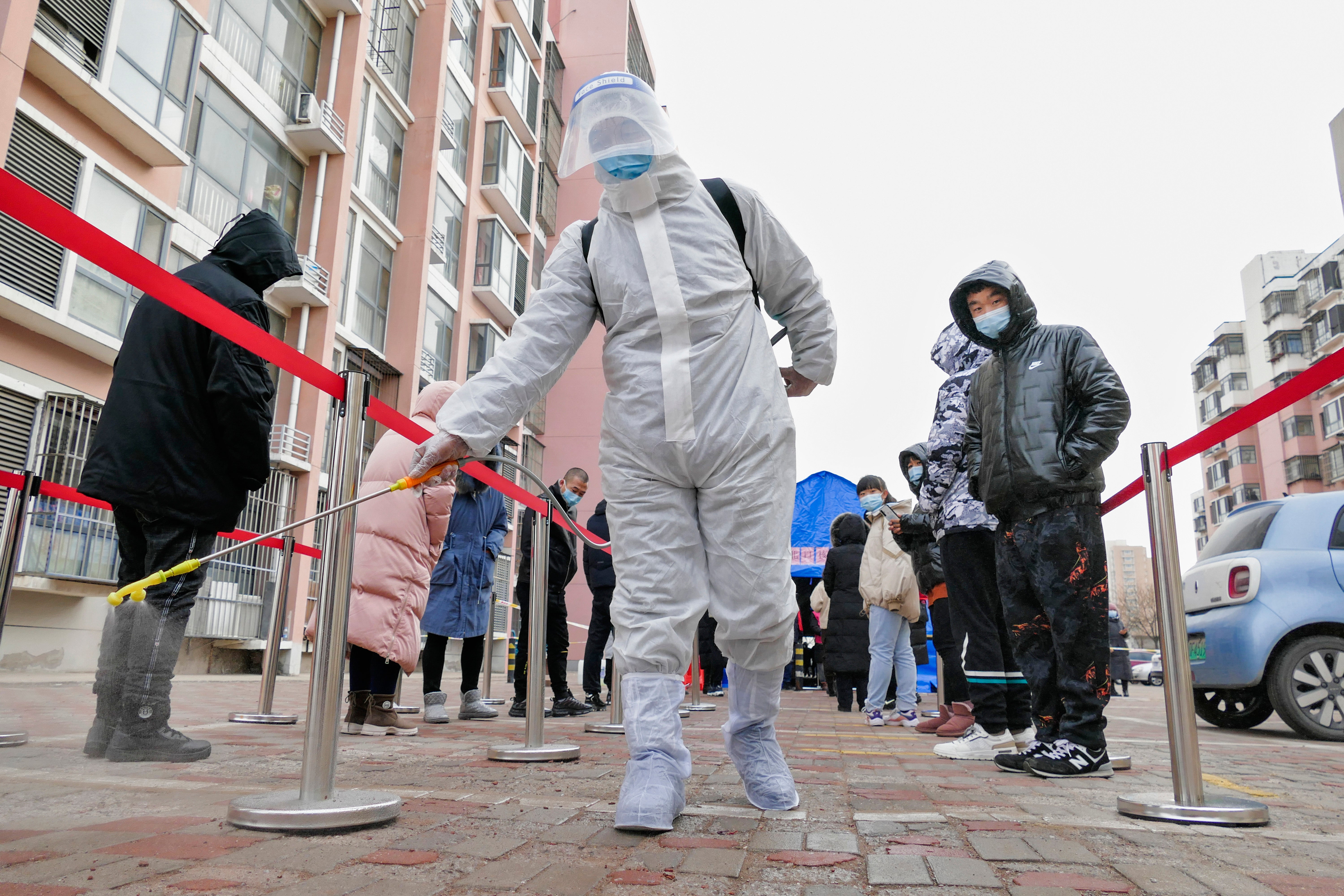Covid cases soar globally with record 15 million new infections in a week
Number of new Covid infections has risen by 55 per cent, World Health Organisation (WHO) says

Your support helps us to tell the story
From reproductive rights to climate change to Big Tech, The Independent is on the ground when the story is developing. Whether it's investigating the financials of Elon Musk's pro-Trump PAC or producing our latest documentary, 'The A Word', which shines a light on the American women fighting for reproductive rights, we know how important it is to parse out the facts from the messaging.
At such a critical moment in US history, we need reporters on the ground. Your donation allows us to keep sending journalists to speak to both sides of the story.
The Independent is trusted by Americans across the entire political spectrum. And unlike many other quality news outlets, we choose not to lock Americans out of our reporting and analysis with paywalls. We believe quality journalism should be available to everyone, paid for by those who can afford it.
Your support makes all the difference.The world has reported a weekly record of 15 million new Covid infections, marking an increase of about 55 percent on the previous week, the World Health Organization (WHO) said in its latest pandemic report.
In the weekly report issued Tuesday night, the UN health agency said every region reported a rise in Covid cases except for Africa, where officials saw an 11 per cent drop. There were at least 43,000 deaths last week, a number which remained stable, WHO said.
Last week, WHO noted a then pandemic record high of 9.5 million new infections in a single week, calling it a “tsunami” of disease.
WHO said the extremely contagious Omicron variant continues to define the pandemic globally and is now crowding out the previously dominant Delta variant.
It said Omicron, which was first detected in southern Africa in late November, accounts for nearly 59 per cent of all sequences shared with the largest publicly available global database of viruses.
WHO said Omicron had now proven to have a shorter doubling time, with increasing evidence it was able to “evade immunity.” It also noted there were numerous studies that it is less severe compared to previous variants.
After a steep rise in omicron cases in South Africa after the variant was first detected, the epidemic quickly dropped and experts believe the wave has now passed. WHO said this week that after a continuous rise of Covid across Africa, cases fell this week for the first time on the continent.
Scientists in Britain and the US say there are early signs the crush of omicron may have peaked, but they are still uncertain how the next phase of the pandemic might unfold. WHO noted the Americas reported the highest-ever number of Covid cases this week, with a 78 per cent spike, mainly driven by the US.
The number of new cases in Europe rose by 31 per cent, while there was a 10 per cent drop in deaths.
The biggest jump in Covid infections was noted in Southeast Asia where cases increased by more than 400 per cent, with the largest numbers reported in India, Timor-Leste, Thailand and Bangladesh. The numbers of deaths in the region fell by 6 per cent.
The Omicron variant spreads even more easily than other coronavirus strains, and has already become dominant in many countries. It also more easily infects those who have been vaccinated or had previously been infected by prior versions of the virus.
However, early studies show Omicron is less likely to cause severe illness than the previous Delta variant, and vaccination and a booster still offer strong protection from serious illness, hospitalization and death.


